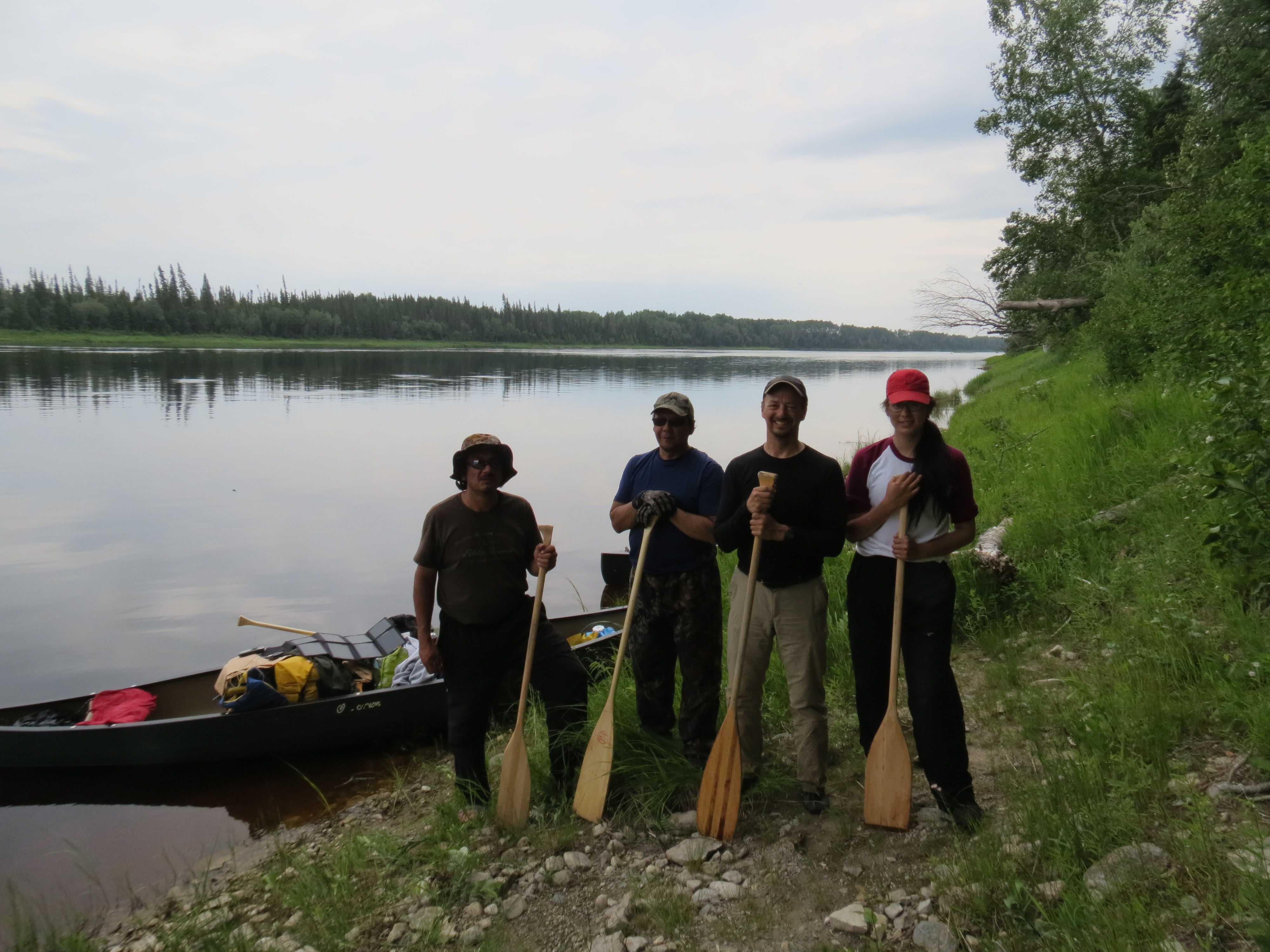Premier Wynne: Say no to drilling in North French River watershed
[callout title=”Breaking News”]
NioBay Metals Inc., the company that applied for the permit, has announced that the Ontario government has put the issuance of the permit on hold, pending consultations with the Moose Cree First Nation, which unanimously opposes the project.
According to the company, the Ontario Ministry of Northern Development and Mines told it that the Ministry is organizing a meeting with representatives of the Moose Cree to address any concerns that they may have about the drilling, which is part of the James Bay Niobium Project.
Nature Canada is pleased to see the government recognize that it should not issue the permit without further consultation with the Moose Cree. However, if the Moose Cree reject the project after this extra consultation, Nature Canada’s view is that the permit application should be denied.
Further, given the ecological significance of this area, Nature Canada continues to propose that the Ontario government should work with the Moose Cree to permanently protect, rather than exploit, the North French River, the nearby South Bluff Creek, and surrounding lands.
[/callout]

Elizabeth Harrison
Law Student
 The Ontario government will soon decide whether or not to issue a permit for drilling activities in the North French River watershed, which is just upstream from the community of Moosonee in Northern Ontario.
The Ontario government will soon decide whether or not to issue a permit for drilling activities in the North French River watershed, which is just upstream from the community of Moosonee in Northern Ontario.
Nature Canada and other nature groups have written to Ontario Premier Kathleen Wynne requesting that her government refrain from issuing this exploration permit for the James Bay Niobium Project. We also believe that the Ontario government should work with the Moose Cree First Nation to make sure these lands and waters are permanently protected.
Nature Canada supports a community’s right to say no to mineral exploration and drilling projects that harm human and ecosystem health. We also support the Treaty, inherent and international rights of Indigenous peoples to protect their lands and water. The Moose Cree First Nation made their opposition to the project clear in 2016 and again a few weeks ago. They rejected a similar project in 2003. The Ontario government should respect the Moose Cree’s position and reject this permit if it is really committed to reconciling relationships with Indigenous peoples and working with the federal government to address the United Nations Declaration on the Rights of Indigenous Peoples (UNDRIP). Project approval would be contrary to these goals, as it would likely add further strain to the relationship between the province and the Moose Cree and is contrary to article 32 2. of UNDRIP, which maintains that “[s]tates shall consult and cooperate in good faith with the indigenous peoples…in order to obtain their free and informed consent prior to the approval of any project affecting their lands or territories and other resources, particularly in connection with the development, utilization or exploitation of mineral, water or other resources”. Furthermore, if the project goes ahead, it would violate the community’s laws and hinder its plan to protect the area, which includes efforts to remedy the existing impacts of past industrial activity. This is contrary to UNDRIP as it emphasizes the importance of recognizing the laws of Indigenous peoples in several provisions and article 4 of UNDRIP emphasizes the importance of self-determination and autonomy.
Nature Canada is also concerned about how the proposed drilling will impact the nearby North French River and South Bluff Creek, two critical sources of clean drinking water for the Moose Cree and this part of the province. South Bluff Creek is a tributary of the North French River, flowing across the Moose Cree First Nation Reserve #68. Moreover, these waterways represent an important source of aquatic habitat.
The land near the proposed drilling site is also ecologically significant. It provides habitat for threatened Boreal Caribou, migratory birds and other wildlife. Further, both the North French River and South Bluff Creek watersheds contain wetlands, which act as carbon sinks. The government should aim to preserve carbon sinks as they are important for reducing global greenhouse gases to combat climate change.
Given the cultural and environmental significance of this area, Nature Canada is also urging the Wynne government to work with the Moose Cree to permanently protect the North French River, the South Bluff Creek and surrounding lands.
Permanent protection would be consistent with Ontario’s commitment, along with other provinces and territories, to the “Pathways to Target 1” process for meeting Canada’s international obligations under the Convention on Biological Diversity. Canada’s Target 1 goal under the Convention is to protect 17% of land and inland waters in Canada by 2020 (Ontario is currently at 10.3%). Permanent protection would also go towards meeting requirements for critical habitat protection under Canada’s Species at Risk Act for boreal caribou.
Please contact Premier Wynne’s office to let her know that that the Ontario government should not issue this permit, and that it should work towards permanently protecting the North French River watershed in collaboration with the Moose Cree First Nation.


